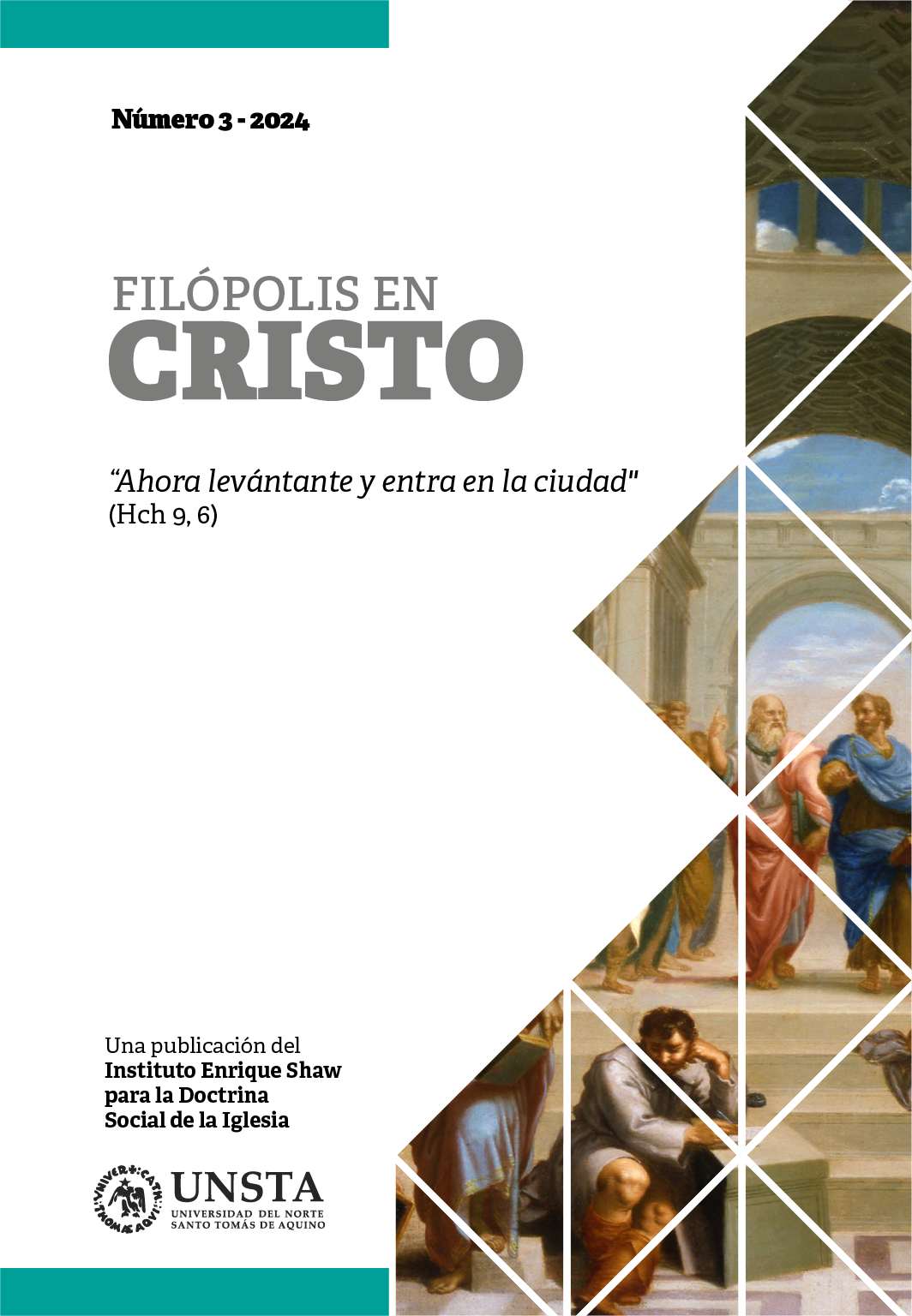Dignity in the foreground
Keywords:
Dignidad infinita, persona, naturaleza racional, derechos humanos, ideología de género.Abstract
This work aims to provide an introduction to the recent document from the Dicastery for the Doctrine of the Faith, “Dignitas infinita,” concerning human dignity. It will analyze the concept of dignity and its ontological grounding in the person; the relevance of certain intuitions from classical metaphysics, such as Boethius's well-known definition, “a person is an individual substance of a rational nature.” It will also refer to the need for a theological grounding of the concept of person, and therefore, of dignity. The reflection will also address the universality or lack thereof of the concept of dignity, considering recent developments in the doctrine and practice of human rights; new meanings of dignity (social and existential) and some of the most serious violations of it (such as abortion, euthanasia, extreme poverty, and neglect of migrants), with special attention to the problems caused by gender ideology. From these analyses arises the necessity to continue the reflection on human dignity as an indispensable task for our time.
Downloads
References
Aristóteles. (1985). Ética a Nicómaco (E. Lledó int., J. Pallí Bonet trad. y not.). Gredos.
Concilio Vaticano II. (1965). Constitución Pastoral Gaudium et Spes.
Dicasterio para la Doctrina de la Fe. (8 de abril de 2024). Declaración Dignitas infinita sobre la dignidad humana. https://press.vatican.va/content/salastampa/es/bollettino/pubblico/2024/04/08/080424c.html
Francisco. (2013). Exhortación Apostólica Evangelii Gaudium. https://www.vatican.va/content/francesco/es/apost_exhortations/documents/papa-francesco_esortazione-ap_20131124_evangelii-gaudium.html
Francisco. (8 de enero de 2024). Discurso a los miembros del Cuerpo Diplomático acreditado ante la Santa Sede para la presentación de las felicitaciones de Nuevo Año. https://www.vatican.va/content/francesco/es/speeches/2024/january/documents/20240108-corpo-diplomatico.html
Frankl, V. (1990). Homo patiens. Herder.
Gregorio de Nyssa. (1863). De vita Moysis (PG 44, 297-340). Garnier Frères.
Kundera, M. (1986). La insoportable levedad del ser. Planeta.
Lafferriere, J. N. (12 de septiembre de 2022). Tribunal Europeo de Derechos Humanos ratifica prohibición de exhibición publicitaria de un video de personas con síndrome de Down en Francia. Centro de Bioética, Persona y Familia. https://centrodebioetica.org/tribunal-europeo-de-derechos-humanos-ratifica-prohibicion-deexhibicion-publicitaria-de-un-video-de-personas-con-sindromede-down-en-francia/
Leocata, F. (1979). Del iluminismo a nuestros días. EDB.
Maritain, J. (1984). El hombre y el Estado. Club de Lectores.
Pablo VI. (1967). Carta Encíclica Populorum Progressio. https://www.vatican.va/content/paul-vi/es/encyclicals/documents/hf_p-vi_enc_26031967_populorum.html
Platón. (2011). Gorgias. En Diálogos (Vol. 2; J. Calonge Ruiz trad., int. y not.). Gredos.
Tomás de Aquino. (1265-1274). Suma Teológica. BAC.
Universidad Católica Argentina. (s.f.). Observatorio de la Deuda Social Argentina. Recuperado el 4 de noviembre de 2024 de: https://uca.edu.ar/es/observatorio-de-la-deuda-social-argentina
Zubiri, X. (2007). El hombre y Dios. Alianza.


 Esta obra está bajo una
Esta obra está bajo una 